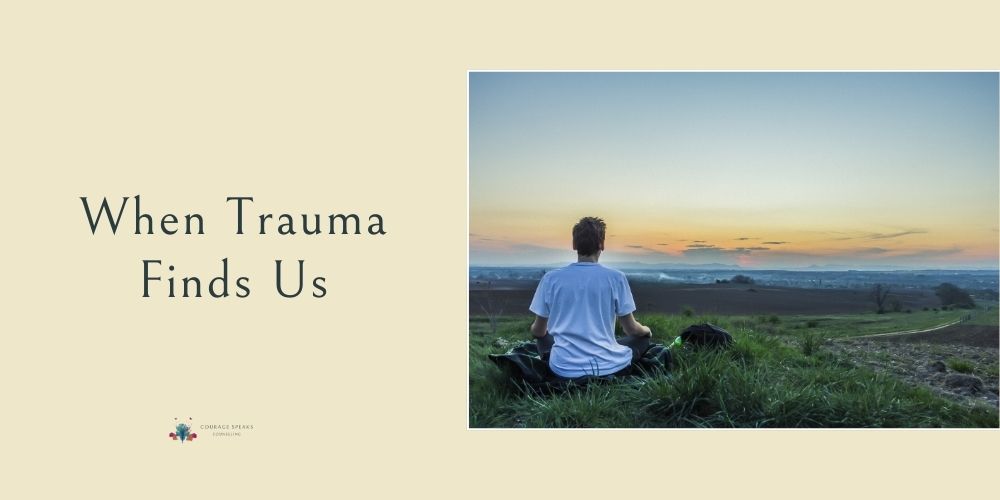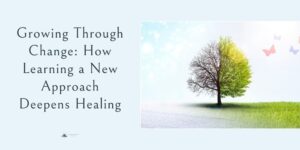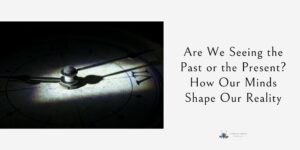Trauma doesn’t always begin at the time of the event. Instead, it often takes root later, in a moment of realization—when a person suddenly understands that what happened wasn’t okay. That moment, whether it comes days, years, or decades later, changes everything. It reframes memories, thoughts, and feelings, casting them in a new, often painful light.
Before that realization, a person might go through life holding onto memories that seem happy, neutral, or even comforting. A child might think, This is just how life is. The warmth of family dinners, the joy of playing outside, or the safety of bedtime routines might seem untouched by anything bad.
But when the realization occurs, the perspective shifts. Memories that once felt ordinary become clouded with pain. Was I really safe in those moments? Was everything as it seemed? The very memories that once offered grounding now feel tainted. The realization isn’t just about the past—it’s a disruption to the present, a rewriting of the story the person had been living.
What Happens If Realization Never Comes?
Without this moment of impact, life might appear smooth on the surface. The person might continue with their positive or neutral memories, unchallenged by the weight of knowing. But trauma doesn’t disappear simply because it’s not acknowledged. It can live quietly in the body, in relationships, and in the patterns of a person’s life.
This can manifest as struggles with trust, intimacy, or self-worth, even if the person doesn’t consciously connect those struggles to past experiences. They might find themselves reacting strongly to seemingly minor events or carrying persistent feelings of shame or fear that don’t seem tied to anything specific.
In this way, the realization is both a disruption and an opportunity. It’s painful, yes, but it also offers a chance to pause, look inward, and begin to understand the unspoken effects of the past.
Acknowledgment Without Judgment
When the realization comes, it’s common for people to feel anger, betrayal, or even blame—toward others or themselves. Why didn’t anyone stop this? How did I not see it before? Was it my fault? These feelings are valid, but they’re not the whole story.
The heart of healing isn’t about blaming or judging—it’s about acknowledging. Acknowledging the experiences your parts had and the impact those experiences had on your sense of safety, worth, and connection. Each part of you holds its own story, shaped by its own perspective. Some parts might feel angry; others might feel ashamed, confused, or protective.
This process is about giving those parts a voice without needing to point fingers. It’s not about absolving others of responsibility but about shifting the focus inward to honor your truth and your healing.
What Does Healing Look Like?
Healing begins with curiosity. It’s about approaching those memories, thoughts, and feelings with compassion. When a part of you says, I feel so angry, or I feel ashamed, instead of pushing it away or assigning blame, you can ask:
- What are you trying to show me?
- What do you need right now?
- How can I hold this with care?
This isn’t easy. It’s tempting to get lost in the stories of “why” or “who,” but true healing comes when we bring the focus back to ourselves. When we acknowledge what happened—not to assign fault, but to connect with the parts of us that carry the impact—we can begin to integrate those experiences into the present.
The Gift of Awareness
The moment of realization can feel like it divides your life into before and after. It can feel disorienting, as though everything you thought you knew has shifted. But this moment is also a gift. It’s the doorway to a deeper understanding of yourself and a chance to rewrite the story—not by erasing the past, but by embracing all the parts of you that lived it.
It’s not about saying, This was okay or I’m fine with it now. It’s about recognizing the truth of your experience and giving yourself permission to feel it fully, without judgment. In doing so, you free yourself from the need to rewrite the past and instead step into the power of creating your future.
When trauma finds us, it often asks hard questions. But it also offers profound opportunities: to heal, to integrate, and to live with a deeper connection to ourselves. And in that process, we find something extraordinary—our wholeness.
Embracing Shadows, Illuminating Hope,
Chelsey Fjeldheim, LCSW
Empowering Souls on the Path of Healing
Copyright © 2024 Chelsey Fjeldheim, Courage Speaks Counseling




